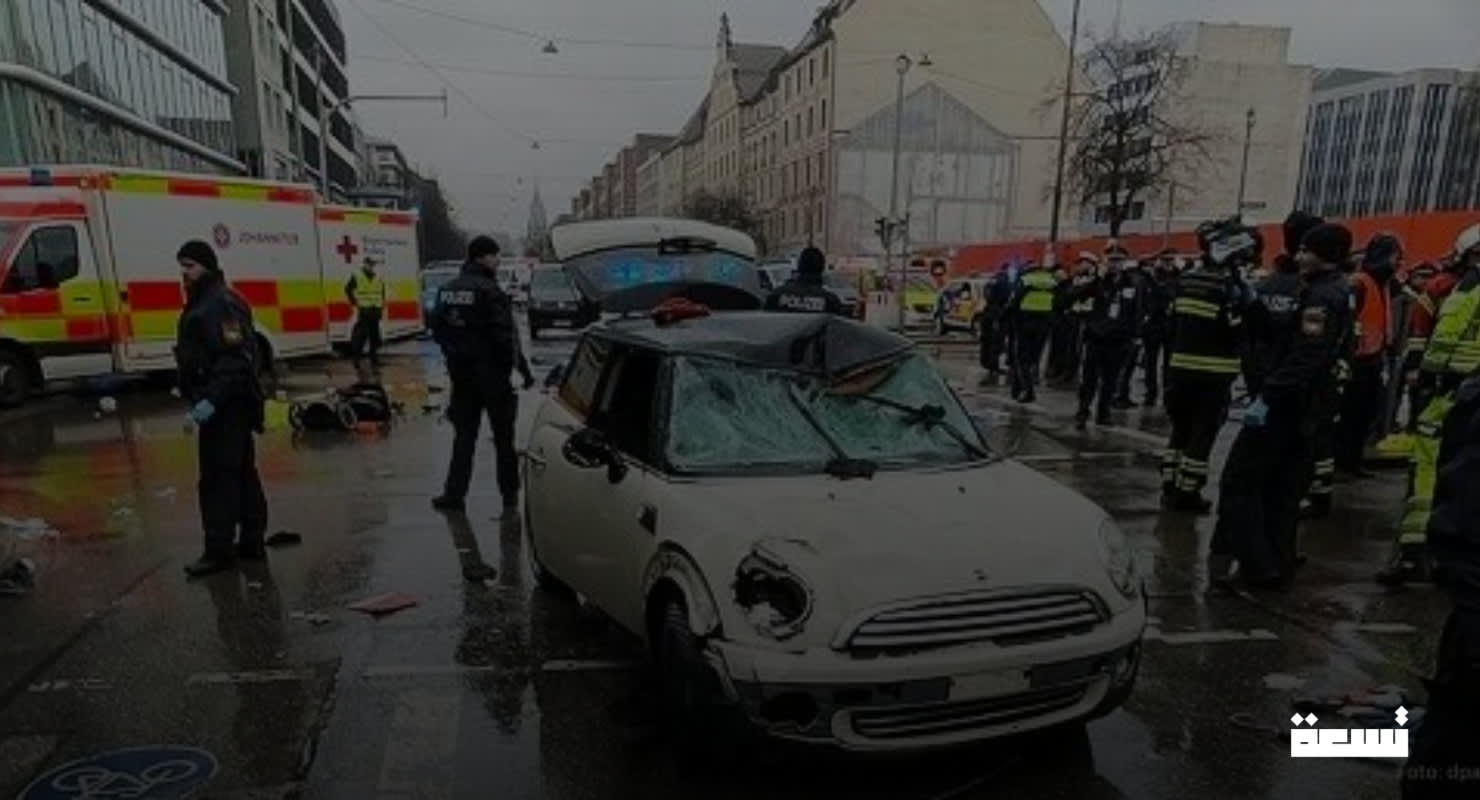In a shocking incident that shook Germany, a horrific hit-and-run attack occurred in the city of Munich today, Thursday, resulting in the injury of 28 people, some of whom are in critical condition.
The incident, which took place just one day before the start of the Munich Security Conference, raised questions about its motives and repercussions, especially after the identity of the perpetrator was revealed. He is a 26-year-old Afghan young man known for his criminal record related to theft and drugs, with a deportation order against him.
Videos circulated showing the moment of the perpetrator's arrest, surrounded by police officers minutes after the attack. While authorities were unable to immediately determine if the incident was intentional, the Prime Minister of Bavaria suggested it was a deliberate attack, a statement later confirmed by German Chancellor Olaf Scholz, who described the act as "heinous" and vowed to punish and deport the perpetrator.
This incident comes in the context of a series of violent attacks recently witnessed in Germany, increasing security concerns and tensions regarding immigration, especially with the upcoming parliamentary elections on February 23.
A few weeks ago, the nearby town of Aschaffenburg witnessed a stabbing incident carried out by another 28-year-old Afghan man who was denied asylum, resulting in the death of a two-year-old child and a 41-year-old man, as well as injuries to several others.
Last December, the city of Magdeburg witnessed a horrific hit-and-run incident when an SUV plowed into a crowded Christmas market, resulting in the death of six people and injuries to about 200 others. It was later revealed that the attacker, a German doctor of Saudi origin, had received warnings from Saudi authorities, yet Germany did not take precautionary measures against him.
The Munich attack coincided with the city's preparations to host the Munich Security Conference, where it is expected that Vice President J.D. Vance and Ukrainian President Volodymyr Zelensky will arrive in the city today. The location of the incident is only 15 minutes away from the hotel hosting the conference, raising concerns about event security.
These recurring incidents raise serious questions about the German authorities' ability to deal with increasing security threats and the impact of immigration and asylum policies on the country's security situation.
The escalating debate leaves the question open:
Will Germany be able to contain these threats?
Or will the country witness more violence in the near future?!

